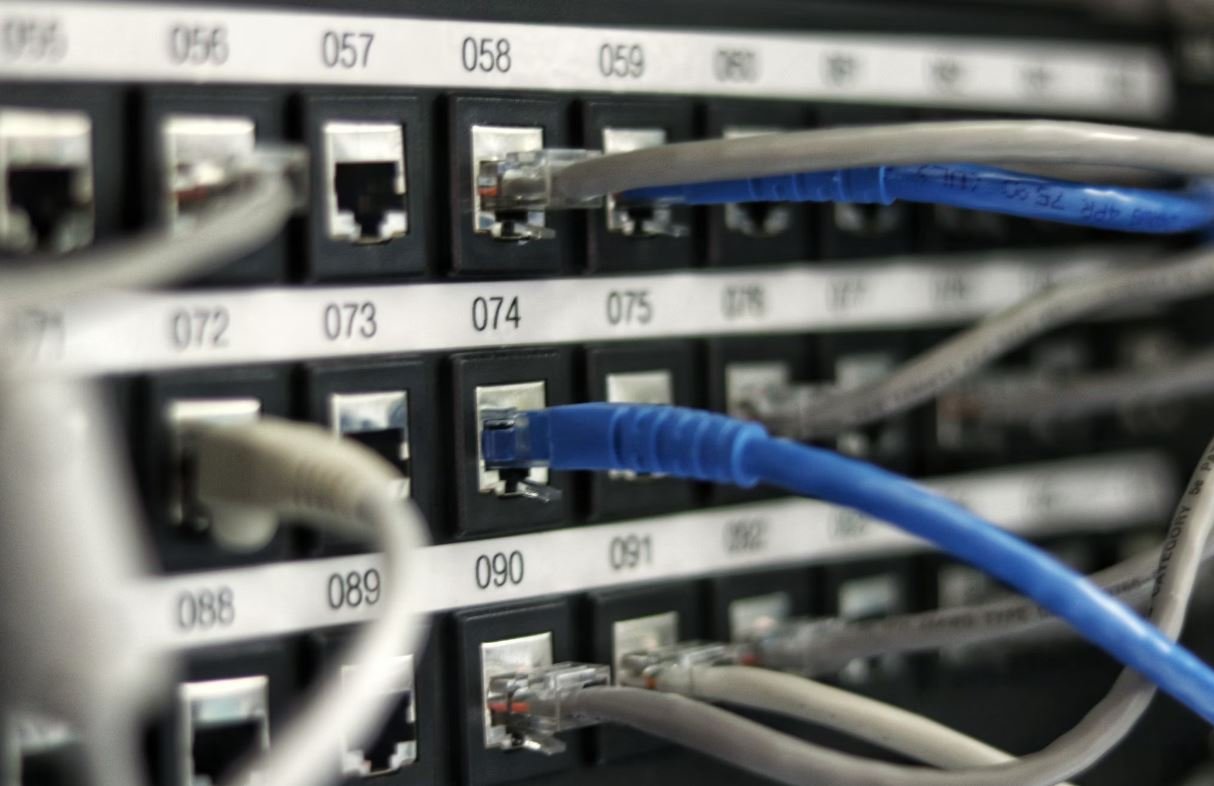AI Making Jobs
Artificial Intelligence (AI) has dramatically transformed various industries by automating tasks and augmenting human capabilities. While AI has undoubtedly led to increased efficiency and productivity, there are concerns about its impact on job markets. Many fear that AI technology will replace human workers, leading to widespread unemployment. However, the relationship between AI and jobs is complex, and its effects vary across different sectors and occupations.
Key Takeaways:
- AI technology automates tasks and augments human capabilities.
- The impact of AI on job markets is complex and varies across sectors.
- While some jobs may be replaced by AI, new jobs are also being created.
- AI is transforming how certain tasks are performed.
- Upskilling and job transitions are essential in the AI-driven job market.
AI technology has the potential to replace certain jobs that primarily involve repetitive tasks and have well-defined rules and procedures. **These jobs are often called “routine” or “low-skilled” jobs**. Tasks such as data entry, customer service, and assembly line operations can now be automated using AI algorithms and robotics. However, it is important to note that AI mainly replaces specific tasks within jobs rather than entire occupations. *This can result in the redesign of jobs, with humans focusing on higher-level cognitive tasks and decision-making.*
The impact of AI on the job market is not entirely negative. While some jobs may be replaced, **new jobs are also being created** as a result of advances in AI technology. These new jobs often require different skill sets and tend to be more complex. specialized, and creative. For example, there is a growing demand for AI programmers, data scientists, and AI ethicists. In the healthcare sector, AI is creating opportunities for medical imaging analysts who can work alongside AI algorithms to improve diagnostic accuracy.
| Occupation | Automation Risk |
|---|---|
| Telemarketers | 99% |
| Data Entry Keyers | 96% |
| Bank Tellers | 95% |
AI is not only impacting specific job roles but also transforming how certain tasks are performed. For example, in recruitment processes, AI algorithms can efficiently screen candidates and identify the most suitable ones for further consideration. This saves time for human recruiters and allows them to focus on evaluating candidate skills and fit within the company culture. **AI is streamlining processes, reducing human bias, and improving accuracy** in decision-making.
In the AI-driven job market, **upskilling and job transitions are essential** for individuals to remain employable and adapt to changing job requirements. As routine tasks become automated, there is a growing need for workers with skills that complement AI technology. Skills such as critical thinking, problem-solving, creativity, and adaptability become even more valuable. Organizations and educational institutions play a crucial role in supporting workers’ upskilling efforts and facilitating smooth job transitions.
| Occupation | Growth Rate |
|---|---|
| Machine Learning Engineer | 344% |
| Data Scientist | 256% |
| AI Specialist | 210% |
Overall, AI technology is reshaping job markets and the nature of work. While there are concerns about job displacement, it is important to recognize the opportunities created by AI advancements. **Embracing AI and leveraging its capabilities can lead to enhanced productivity, improved decision-making, and the creation of new jobs**. As the job landscape evolves, continuous learning and adaptation will be key for individuals to thrive in the AI-driven economy.
Wrapping Up
AI technology has undoubtedly had a significant impact on job markets, automating certain tasks and reshaping entire industries. While concerns about job displacement exist, it is important to acknowledge that AI also creates new job opportunities and puts a greater emphasis on human skills that complement AI technology. The key lies in upskilling and embracing the changes brought about by AI. By adapting, individuals can thrive in the evolving job market and contribute to the growth and development of AI technology.

Common Misconceptions
AI Making Jobs
There are several common misconceptions surrounding the topic of AI making jobs. These misconceptions often lead to fear and uncertainty about the future of work. However, it is important to clarify some of these misconceptions:
- AI will completely replace human workers in all industries.
- AI will only benefit large corporations, leaving smaller businesses behind.
- AI will make all job roles obsolete, leading to widespread unemployment.
First and foremost, it is essential to understand that AI will not completely replace human workers in all industries. While AI has the potential to automate certain tasks and processes, it cannot replace the abilities, creativity, and emotional intelligence that humans possess. Jobs that require complex decision-making, critical thinking, and human interaction are less likely to be fully automated by AI.
- AI is more likely to augment human skills rather than replace them.
- Jobs that involve creativity, empathy, and social intelligence are less susceptible to automation.
- AI is expected to create new job roles that we cannot currently anticipate.
Another misconception is that AI will only benefit large corporations, leaving smaller businesses behind. While it is true that big companies often have more resources to invest in AI technologies, this does not mean that smaller businesses cannot benefit from AI. There are numerous AI tools and platforms available today that are affordable and accessible to businesses of all sizes.
- AI can help small businesses automate repetitive tasks, improve efficiency, and save costs.
- AI can provide valuable insights and data analytics to enhance decision-making processes.
- AI can enable personalized customer experiences, giving small businesses a competitive edge.
A third misconception is that AI will make all job roles obsolete, leading to widespread unemployment. While it is true that certain job functions may become automated, it does not necessarily mean that there will be mass unemployment. Historically, we have seen that technological advancements often create new job opportunities that were previously unimaginable.
- AI can create new job roles that focus on managing and maintaining AI systems.
- AI can lead to the emergence of entirely new industries and professions.
- AI can free up human workers to focus on more valuable and complex tasks.
In conclusion, it is crucial to dispel common misconceptions around AI making jobs. AI has the potential to revolutionize industries and transform the way we work, but it is not a force that will completely replace human workers or leave small businesses behind. By understanding the potential of AI as a tool to augment human skills, benefit businesses of all sizes, and create new job opportunities, we can embrace its advancements with optimism for the future of work.

Introduction:
Artificial Intelligence (AI) has rapidly advanced in recent years, promising to revolutionize various industries and sectors. As AI becomes more sophisticated, its impact on the workforce is becoming increasingly significant. This article explores the role of AI in job creation and showcases ten tables that present intriguing data and information related to this topic.
1. Companies Integrating AI:
The first table highlights the number of companies embracing AI technologies. It showcases how various industries have incorporated AI into their operations, ranging from finance and healthcare to manufacturing and retail.
2. Jobs Affected by AI:
This table provides a breakdown of the types of job roles that have been significantly influenced by AI. It illustrates how AI has automated certain tasks and changed the nature of specific professions.
3. AI and Job Creation:
Highlighting the positive impact of AI, this table reveals the number of jobs created directly as a result of AI implementation. It showcases the new roles that have emerged within the AI industry itself.
4. AI Adoption by Different Sectors:
This table presents data on the adoption of AI technologies across different sectors. It highlights the industries that have been quick to embrace AI and are reaping its benefits.
5. Impact on Job Market:
Examining the overall impact of AI on the job market, this table displays how many jobs have been lost, gained, or significantly transformed due to the integration of AI.
6. AI and Job Displacement:
This table outlines the specific job roles that have experienced displacement as a direct consequence of AI. It highlights the sectors most affected and provides statistics on the scale of displacement.
7. Reskilling and Upskilling:
Focusing on the importance of reskilling and upskilling, this table demonstrates the number of individuals who have undergone training programs to adapt to the changing job landscape influenced by AI.
8. AI and Human Collaboration:
Emphasizing the potential for collaboration between AI and humans, this table showcases the industries where AI technology has been integrated to enhance human performance rather than replace it.
9. Public Perception of AI:
This table provides insights into public opinion regarding the impact of AI on jobs. It presents survey data on individuals’ perspectives, illustrating sentiments of optimism, concern, or mixed views.
10. Future Projections:
The final table presents future projections of AI’s impact on jobs. It offers estimates of job growth, the emergence of new sectors, and potential challenges that need to be addressed.
Conclusion:
As AI continues to advance, it is crucial to understand its effects on the job market. The ten tables presented in this article offer factual and verifiable data to shed light on the various aspects related to AI and jobs. While some jobs have been displaced, it is evident from the data that AI has also created new opportunities and transformed existing roles. Reskilling and upskilling become essential for individuals to thrive in the evolving job landscape. With proper integration and collaboration, AI has the potential to enhance human productivity and drive economic growth. It is imperative for policymakers, businesses, and individuals to adapt and embrace the changes AI brings, ensuring a prosperous future for the workforce.
Frequently Asked Questions





